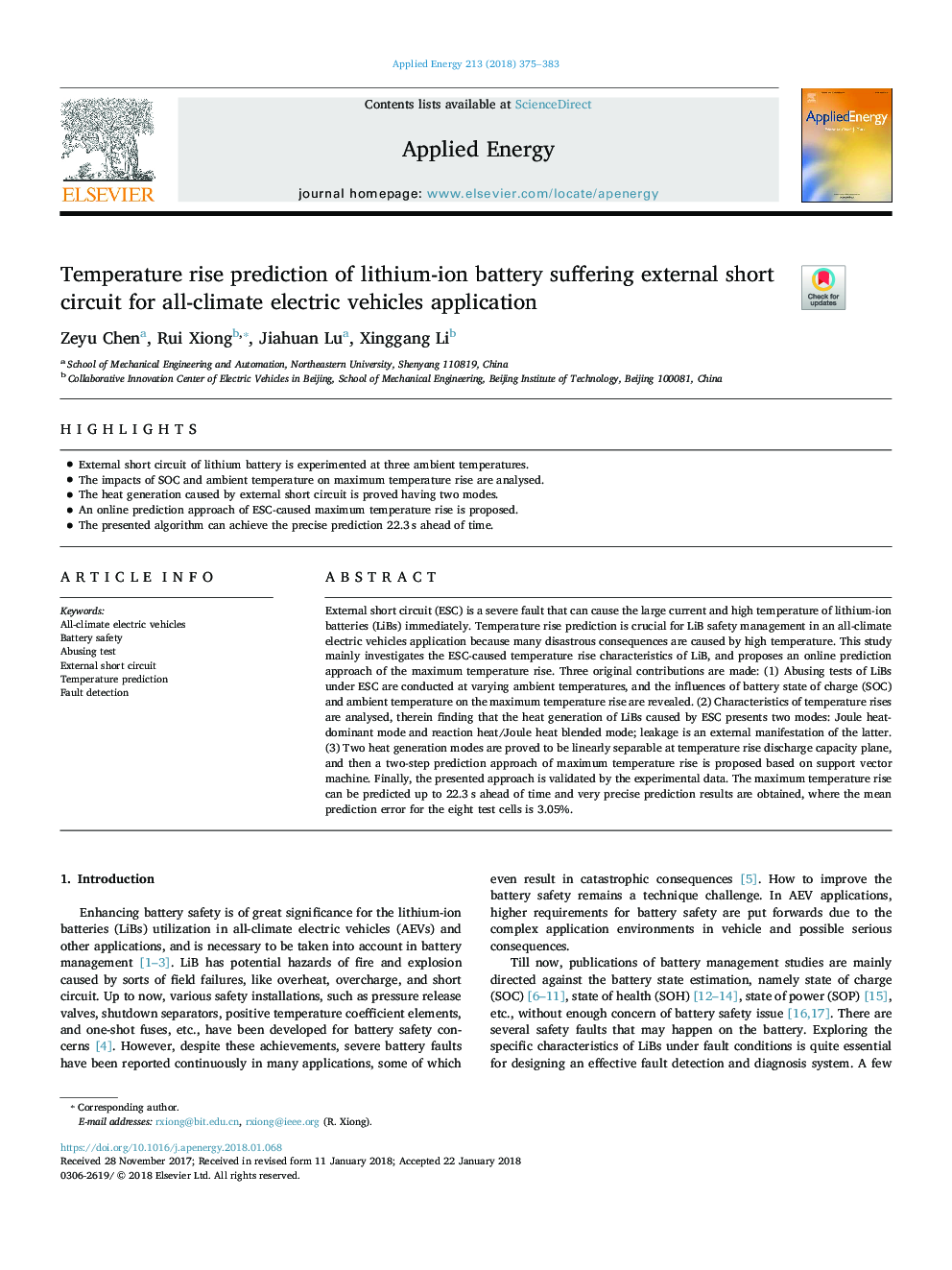| Article ID | Journal | Published Year | Pages | File Type |
|---|---|---|---|---|
| 6680808 | Applied Energy | 2018 | 9 Pages |
Abstract
External short circuit (ESC) is a severe fault that can cause the large current and high temperature of lithium-ion batteries (LiBs) immediately. Temperature rise prediction is crucial for LiB safety management in an all-climate electric vehicles application because many disastrous consequences are caused by high temperature. This study mainly investigates the ESC-caused temperature rise characteristics of LiB, and proposes an online prediction approach of the maximum temperature rise. Three original contributions are made: (1) Abusing tests of LiBs under ESC are conducted at varying ambient temperatures, and the influences of battery state of charge (SOC) and ambient temperature on the maximum temperature rise are revealed. (2) Characteristics of temperature rises are analysed, therein finding that the heat generation of LiBs caused by ESC presents two modes: Joule heat-dominant mode and reaction heat/Joule heat blended mode; leakage is an external manifestation of the latter. (3) Two heat generation modes are proved to be linearly separable at temperature rise discharge capacity plane, and then a two-step prediction approach of maximum temperature rise is proposed based on support vector machine. Finally, the presented approach is validated by the experimental data. The maximum temperature rise can be predicted up to 22.3â¯s ahead of time and very precise prediction results are obtained, where the mean prediction error for the eight test cells is 3.05%.
Related Topics
Physical Sciences and Engineering
Energy
Energy Engineering and Power Technology
Authors
Zeyu Chen, Rui Xiong, Jiahuan Lu, Xinggang Li,
